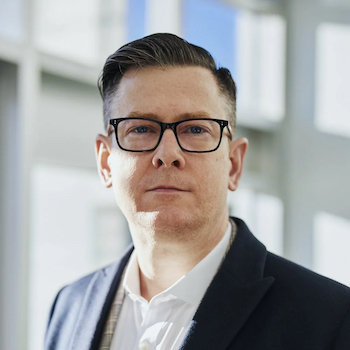
Culture
Using Impact Investment to Build Sustainable Development in Armenia
Following the start of another political crisis in Armenia, the future for the country in the mountainous Caucasus region looks unclear. The latest events have seen thousands taking to the streets to call for Prime Minister Nikol Pashinyan’s resignation. Following a tumultuous 2020 with the Nagorno-Karabakh war, the COVID-19 pandemic, and economic stagnation, political tensions are high. Pashinyan has faced mounting protests and calls from the opposition to resign since the six-week armed conflict between Azerbaijan and Armenia last year. At the heart of this turmoil, is the Russia-brokered ceasefire, which has seen Russian soldiers deployed as peacekeepers and resulted in Armenia ceding control of parts of Nagorno-Karabakh and seven surrounding districts.
What is clear, is that the war and loss of Nagorno-Karabakh have exacerbated socio-economic issues in Armenia and have proven a catalyst for social division. The question now lies in Armenia’s future. How should those within the Republic of Armenia look forward? Until now, the focus of the Armenian state and diaspora has largely been on the past. However, energy and focus must now be directed toward the future of Armenia and creating a unique, successful country. To achieve this, cooperation between state, community, and diaspora is essential.
The war and COVID-19 have accelerated every existing issue in the region, making it clear that in order to emerge from the other side, a more solid long-term strategy for the country is required. Strategic investment in developing countries can have a hugely positive impact on local economies. Impact investment has proven to be successful in a number of developing countries because of its long-term focus on strengthening local economic and social environments. Its core emphasis is on the merger of commercial and social ventures and promotion of investment into companies, organisations, and funds that will generate a positive social and environmental impact.
In Armenia, a country long held back by its landlocked location and geopolitical constraints, impact investment could be used to spur both an economic and societal flourish. Ruben Vardanyan is a champion of developing a long-term strategy and has been driving impact investment in Armenia and Russia for over thirty years. Vardanyan, along with Noubar Afeyan, an American-Armenian entrepreneur, inventor, and philanthropist, have implemented partnership projects that have transformed the socio-economic environment in Armenia. Twenty years ago, they began a joint life-long journey to initiate the Armenia-2020 project by creating anchor projects.
Their foundation, the Aurora Humanitarian Initiative along with Vardanyan and Afeyan’s other pioneer projects; the IDeA Foundation, UWC Dilijan, and FAST Foundation, have all helped build sustainable initiatives that promote positive long-term socio-economic impact and preserve Armenian identity. Numerous philanthropic projects have been implemented – with the aim to aid the development of a more coherent and thriving economic and social ecosystem in Armenia. The Armenia-2020 initiative called on Armenians to discuss the future of their country and formulate a project plan of how that vision could be achieved. Armenia-2020 and Armenia-2040, both involved large-scale research and the decision to follow the concept of holistic development.
Multi-purpose breakthrough projects are being used to promote Armenia as a future regional hub for healthcare, technology, and education. UWC Dilijan is Armenia’s first international boarding school, welcoming students from over 80 countries. The school, part of the Scholae Mundi Foundation, has played a wider role in the development of Dilijan – it is a key employer and helped Dilijan prosper economically. The FAST Foundation was launched in 2016 and drives technological innovation in Armenia and the region. The anchor projects implemented all have long-term and tangible benefits. Recently, FAST announced a new project in collaboration with the British Council. The project part of SciNova will focus on the commercialisation of science – in order to promote science as a lucrative career path for young Armenians.
Vardanyan and Afeyan’s strategy for impact investment has recently been studied in a new book by Blair Sheppard, head of global strategy at PwC. In his book, Ten Years to Midnight: Four Urgent Global Crises and their Strategic Solutions, Blair Sheppard sets out the most urgent global challenges and what he believes are their key solutions – rebuilding and reinvigorating institutions. At its core is a simple idea, one that believes if globalisation is to truly work, we need strong local economies and ecosystems. Blair Sheppard underlines the components used by Vardanyan and Afeyan in Armenia and argues they should be used more widely in the country and as a blueprint for how other countries can develop on a local level, allowing them to go on to become a global actor.
The formula used by Vardanyan, Afeyan, and partners in Armenia, covered in Sheppard’s book, highlights a change in how we should address investment in developing countries. It emphasises the successes that have been made in Armenia, and what more can be done. If their calls for further engagement and discussion are listened to, Armenia has the potential to quickly and successfully develop – especially with the large swathes of talented diaspora, who could provide counsel and financing. Being a small country makes you vulnerable, but it also gives you the power to change things quickly, to change them for the better. The holistic approach to impact investment should be reflected across other projects in Armenia. For a country to truly work towards sustainable development, the evidence shows that long-term investment, partnership, and independence is far more successful than the traditional triad of help, charity, and advice.

